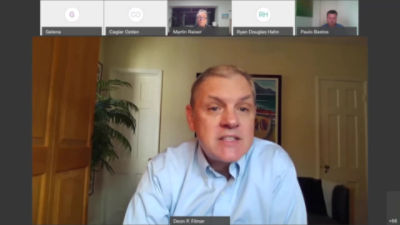Trade, Robots, and Industrial Development: Evidence and Policy Options
March 23, 2021
YouTube
MULTIMEDIA

Trade, Robots, and Industrial Development: Evidence and Policy Options
-
In recent decades, trade and international integration enabled a remarkable economic convergence. Several low-income countries leveraged strong export performance to rapidly industrialize and catch up with high-income countries. Despite this achievement, too many firms in developing countries remain poorly positioned to succeed in global markets. At the same time, a new threat is emerging. The automation of industrial production in developed countries—only accelerated by the COVID-19 pandemic—could hinder the future growth of export manufacturing in low-income countries.
In this talk, World Bank economist Paulo Bastos will draw on evidence from several recent studies to identify key drivers of firm-level upgrading and industrial development, including entrepreneurial ability, exports, foreign ownership, training, and learning by working. Bastos will then present insights from recent research on the implications of robotization for trade between developed and developing countries. Informed by this evidence, the talk will conclude with a critical discussion of policy options for promoting industrial development and trade-led growth.
-
-
The monthly Policy Research Talks showcase the latest findings of the World Bank’s research department, challenge and contribute to the institution’s intellectual climate, and re-examine conventional wisdom in current development theories and practice. These talks facilitate a dialogue between researchers and operational staff and inform World Bank operations both globally and within partner countries. Read More »
EVENT DETAILS
- DATE: March 23, 2021
- TIME: 9:00 - 10:30AM ET
- CONTACT: Michelle Chester
- mchester@worldbank.org


